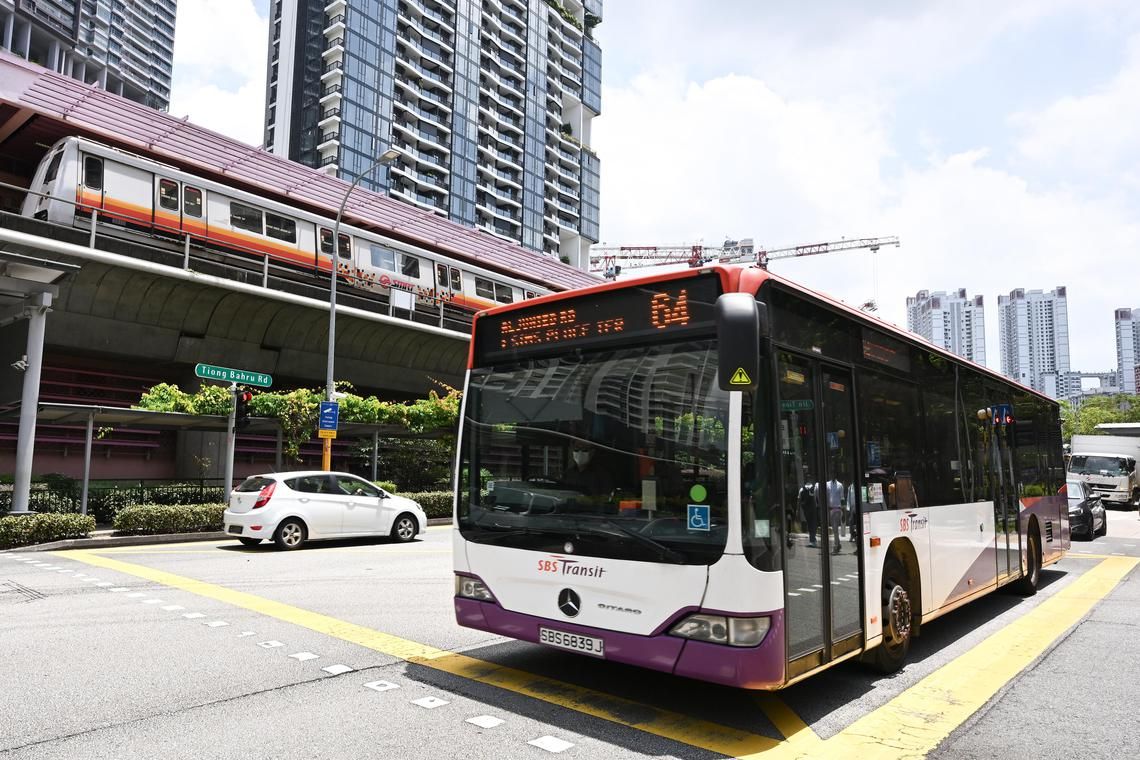SINGAPORE – An active braking system designed to detect road hazards early and minimise the risk of injury to passengers during emergency braking will be tested on some public buses in the first half of 2026.
SBS Transit said on May 8 that its new responsive and adaptive braking system will be developed with Chinese artificial intelligence company Streamax and Singapore-based surveillance solutions firm TNT Surveillance, following the inking of an agreement in April 2025.
The system will incorporate the use of radar sensors and cameras to continuously monitor the surroundings of the bus, detecting hazards and responding within 40 milliseconds – more than 35 times faster than the average human reaction time – to avert accidents.
By detecting targets up to 150m ahead – earlier than a human driver may notice – the system can apply moderate braking over a longer distance.
Automatic braking will also kick in to ensure the bus keeps a safe distance, such as if a car swerves into its lane or a pedestrian steps out in front of the bus suddenly.
Even while ensuring the bus stops safely in such cases, the braking force would be gentler than a human driver’s harsh braking, SBS Transit said.
It will also control the bus’ deceleration in cases of emergency braking, to prevent sudden jolts that can throw seated passengers forward and cause standing passengers to lose their balance.
This will significantly reduce the likelihood of injuries while preventing collisions, the public transport operator said.
Should a collision be unavoidable, the system will automatically moderate the braking force to lessen the impact and help reduce the risk of injury and minimise damage to the vehicle.
The system will be designed to handle the dynamic nature of traffic and will constantly adjust its braking response based on how fast the bus is going or how crowded the roads are, as well as weather or road conditions.
In addition, it will transmit real-time data, such as live video feeds, precise vehicle locations and incident details, directly to the bus operations control centre.
This will allow quicker response times and improve the situational awareness of its operations team, said SBS Transit.
Mr Jeffrey Sim, group chief executive of SBS Transit, noted that road safety is the operator’s top priority, which is why it continually invests in technologies to improve safety standards, in alignment with recommendations of the Government’s bus safety task force.
Set up in July 2024, the bus safety task force proposed in March 2025 that bus drivers be given technological tools to help them drive safely.
It also recommended better working conditions, with capped run times and improved management of road works.
In 2021, an elderly passenger died after sustaining a head injury and broken ribs when he fell in a bus after the driver braked abruptly to avoid colliding with a car that had suddenly turned into its lane.
In March 2025, another elderly man died after losing his balance and falling in a bus.
Transport operator ComfortDelGro, the parent company of SBS Transit, introduced automatic emergency braking and collision warning features in four of its private buses in 2019.
Bus automatic braking systems have been adopted in other countries.
Since 2024, all new buses in London must be fitted with an advanced emergency braking feature that uses sensors to warn the driver when the bus is close to other road users, and to brake automatically if necessary.
Join ST’s WhatsApp Channel and get the latest news and must-reads.

